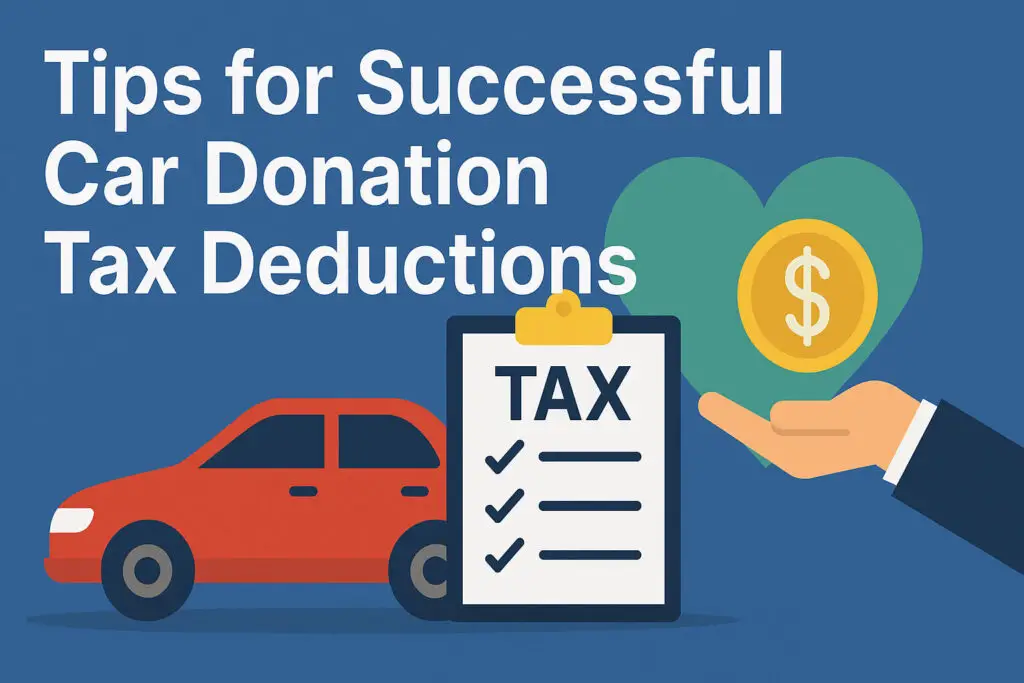Welcome to the ultimate guide on car leasing tailored specifically for college students. In today’s fast-paced world, having access to reliable transportation is crucial, especially for students juggling academics, internships, and social activities. This guide aims to provide comprehensive insights into the world of car leasing, empowering you to make informed decisions that suit your lifestyle and budget.
Understanding Car Leasing
What is Car Leasing?
Car leasing is a convenient alternative to traditional car ownership, offering the flexibility of driving a new vehicle without the long-term commitment. Essentially, leasing allows you to use a car for a set period, typically 2-4 years, by paying a monthly fee. Unlike buying a car, where you own the vehicle outright, leasing involves renting the vehicle from a dealership or leasing company.
How Does Car Leasing Differ from Buying?
The primary difference between leasing and buying lies in ownership. When you lease a car, you’re essentially renting it for a predetermined period, whereas buying grants you full ownership of the vehicle. Additionally, leasing often requires lower upfront costs and monthly payments compared to purchasing a car outright.
Pros and Cons of Leasing for College Students
Pros:
- Financial Flexibility: Leasing offers lower monthly payments and requires minimal upfront costs, making it more accessible for college students on a tight budget.
- Access to Newer Models: Leasing allows you to drive the latest models with advanced features and technology, enhancing your driving experience.
- Limited Maintenance Hassles: Since leased vehicles are typically covered under warranty, maintenance and repair costs are minimized, providing peace of mind for busy students.
Cons:
- Mileage Restrictions: Most lease agreements come with mileage limits, and exceeding these limits can result in additional fees.
- No Ownership Equity: Unlike purchasing a car, leasing does not build equity, meaning you won’t have an asset to sell or trade-in at the end of the lease term.
- Potential Fees and Penalties: Terminating a lease early or exceeding wear and tear guidelines can result in costly penalties, so it’s essential to understand the terms of your lease agreement.
Benefits of Leasing for College Students
Financial Flexibility
Car leasing offers college students the flexibility to drive a reliable vehicle without committing to a long-term loan. With lower upfront costs and monthly payments, leasing allows students to allocate their finances more effectively, whether for tuition, housing, or other expenses.
Lower Monthly Payments
One of the most significant advantages of leasing for college students is the lower monthly payments compared to purchasing a car outright. Since lease payments are based on the vehicle’s depreciation rather than its total cost, students can enjoy driving a new car at a more affordable price point.
Access to Newer Models
Leasing provides college students with access to the latest car models equipped with advanced technology, safety features, and fuel efficiency. Driving a new vehicle not only enhances the overall driving experience but also reduces the likelihood of unexpected repairs or maintenance issues.
Limited Maintenance Hassles
Maintaining a leased vehicle is often more straightforward and cost-effective for college students. Since leased cars are typically covered under warranty for the duration of the lease term, students can enjoy peace of mind knowing that most repair and maintenance costs are included in their lease agreement.
Factors to Consider Before Leasing
Budgeting for Lease Payments
Before committing to a lease agreement, it’s crucial to assess your financial situation and determine how much you can afford to spend on monthly lease payments. Consider factors such as your income, expenses, and any potential changes in your financial circumstances.
Understanding Mileage Limits
Most lease agreements come with mileage limits, which dictate how many miles you can drive the vehicle each year without incurring additional fees. Be sure to estimate your annual mileage accurately and choose a lease agreement that aligns with your driving habits and needs.
Evaluating Insurance Costs
While leasing typically includes insurance coverage, it’s essential to understand the terms and conditions of your lease agreement and ensure you have adequate insurance protection. Compare insurance quotes from multiple providers to find the best coverage options at the most competitive rates.
Exploring Lease Terms and Conditions
Lease agreements vary depending on the leasing company and the terms negotiated with the dealership. Take the time to read and understand the terms and conditions of your lease agreement, including any potential fees, penalties, or restrictions that may apply.
Finding the Right Car
Assessing Your Needs
Before selecting a leased vehicle, consider your specific transportation needs, including passenger capacity, cargo space, fuel efficiency, and desired features. Whether you prioritize comfort, performance, or eco-friendliness, choose a car that aligns with your lifestyle and preferences.
Researching Different Models
With a vast array of car models available on the market, research is key to finding the right vehicle for your needs. Compare specifications, features, and reviews of different makes and models to narrow down your options and find the perfect fit.
Considering Fuel Efficiency
For college students on a budget, fuel efficiency is a crucial factor to consider when leasing a car. Opt for vehicles with high gas mileage or explore alternative fuel options such as hybrid or electric vehicles to save money on fuel costs over time.
Factoring in Safety Features
Safety should always be a top priority when choosing a leased vehicle, especially for college students who may be driving long distances or in unfamiliar areas. Look for cars equipped with advanced safety features such as anti-lock brakes, traction control, and advanced airbag systems to ensure a secure driving experience.
Lease Negotiation Tips
Understanding Negotiable Terms
When negotiating a lease agreement, it’s essential to understand which terms are negotiable and which are fixed. Focus on aspects such as the capitalized cost, residual value, money factor, and lease term to secure the most favorable terms.
Researching Market Rates
Before entering into lease negotiations, research current market rates for the vehicle you’re interested in leasing. Compare prices from multiple dealerships and leasing companies to leverage competitive offers and negotiate the best deal.
Negotiating Down Payments
While lease agreements typically require lower upfront costs compared to purchasing a car, negotiating a lower down payment can further reduce your initial financial burden. Be prepared to negotiate with the dealership to lower your down payment or explore alternative financing options.
Securing Favorable Lease Terms
In addition to negotiating price and down payment, focus on securing favorable lease terms that align with your budget and lifestyle. Pay attention to factors such as lease duration, mileage limits, and maintenance responsibilities to ensure a hassle-free leasing experience.
Lease Application Process
Gathering Necessary Documents
Before applying for a lease, gather all required documents, including proof of income, identification, and insurance information. Having these documents readily available will streamline the application process and expedite approval.
Submitting Lease Applications
Once you’ve gathered all necessary documents, submit your lease application to the dealership or leasing company for review. Be prepared to provide additional information or documentation as requested to facilitate the approval process.
Understanding Credit Checks
As part of the lease application process, leasing companies will conduct a credit check to assess your financial responsibility and creditworthiness. While having a good credit score can improve your chances of approval, many leasing companies offer options for students with limited or no credit history.
Finalizing Lease Agreements
After your lease application is approved, review the lease agreement carefully to ensure all terms and conditions are accurate and acceptable. If you have any questions or concerns, don’t hesitate to ask for clarification before signing the agreement.
Responsibilities During the Lease
Maintaining Regular Payments
Once your lease agreement is in effect, it’s essential to make regular monthly payments on time to avoid defaulting on your lease. Set up automatic payments or reminders to ensure you never miss a payment deadline.
Adhering to Mileage Restrictions
Monitor your mileage closely throughout the lease term to avoid exceeding the mileage limits specified in your lease agreement. If you anticipate exceeding the mileage limits, consider purchasing additional miles upfront or exploring mileage forgiveness options.
Keeping the Vehicle in Good Condition
Maintaining the leased vehicle in good condition is essential to avoid excess wear and tear charges at the end of the lease term. Follow the manufacturer’s recommended maintenance schedule and address any maintenance or repair needs promptly.
Addressing Maintenance Needs
If the leased vehicle requires maintenance or repairs during the lease term, contact the dealership or leasing company to schedule service appointments. Be sure to keep records of all maintenance and repair work performed on the vehicle for documentation purposes.
Handling Lease End Procedures
Understanding Lease End Options
As the end of your lease term approaches, familiarize yourself with the lease end options available to you. Depending on your preferences and circumstances, you may choose to return the vehicle, purchase it outright, or lease a new vehicle.
Evaluating Wear and Tear Charges
Before returning the leased vehicle, schedule a pre-inspection to assess its condition and identify any excess wear and tear that may result in additional charges. Address any issues proactively to minimize potential fees at lease end.
Preparing for Vehicle Inspections
Prior to returning the leased vehicle, thoroughly clean both the interior and exterior to ensure it’s in the best possible condition. Remove personal belongings and perform any necessary repairs or touch-ups to restore the vehicle to its original condition.
Deciding on Lease Renewal or Return
Before the lease term expires, evaluate your options and decide whether to renew the lease, return the vehicle, or explore alternative transportation solutions. Consider factors such as your driving habits, budget, and future plans to make an informed decision.
Frequently Asked Questions (FAQs)
Can college students lease a car?
Yes, college students can lease a car, provided they meet the leasing company’s eligibility requirements and have the necessary documentation to support their application.
What are the age requirements for leasing?
The age requirements for leasing vary depending on the leasing company and state regulations. In most cases, lessees must be at least 18 years old to enter into a lease agreement.
Do I need a cosigner to lease a car as a student?
While having a cosigner can increase your chances of approval, many leasing companies offer lease options for students without a cosigner. However, having a stable income and good credit history can improve your chances of securing a lease independently.
Can I lease a car with no credit history?
Yes, some leasing companies offer lease options for individuals with limited or no credit history. However, you may be required to provide additional documentation or pay a higher security deposit to offset the perceived risk.
Are there any special lease deals for college students?
Many car manufacturers and dealerships offer special lease deals and incentives for college students, including discounted lease rates, waived fees, and flexible terms. Be sure to research available offers and negotiate with the dealership to secure the best deal.
How does insurance work for leased cars?
Leased cars are typically required to have full coverage insurance, including liability, collision, and comprehensive coverage. The leasing company may also require you to add gap insurance to protect against potential losses in the event of an accident or theft.
What happens if I exceed the mileage limit?
If you exceed the mileage limit specified in your lease agreement, you will be charged an excess mileage fee for each mile driven beyond the limit. To avoid excessive fees, monitor your mileage closely throughout the lease term and consider purchasing additional miles upfront if needed.
Can I modify a leased vehicle?
Modifying a leased vehicle is generally discouraged, as any alterations or additions may void the warranty or result in additional charges at lease end. If you wish to customize the leased vehicle, consult with the leasing company or dealership for approval and guidance.
What are the penalties for terminating a lease early?
Terminating a lease early can result in costly penalties, including early termination fees, remaining lease payments, and depreciation charges. Before considering early termination, review your lease agreement carefully and explore alternative options to minimize financial impact.
How does leasing affect my credit score?
Leasing a car can impact your credit score in several ways. Making timely lease payments can help improve your credit score over time, while defaulting on lease payments or terminating a lease early can have a negative effect on your creditworthiness.
Conclusion
In conclusion, car leasing offers college students a convenient and affordable transportation solution, allowing them to enjoy the benefits of driving a new vehicle without the long-term commitment of ownership. By understanding the leasing process, evaluating your needs, and negotiating favorable terms, you can make informed decisions that suit your lifestyle and budget. Whether you’re commuting to campus, traveling for internships, or exploring new opportunities, car leasing provides the flexibility and freedom you need to succeed as a college student.
With this comprehensive guide, you’re equipped with the knowledge and resources to navigate the world of car leasing confidently. From understanding the fundamentals of leasing to handling lease end procedures, you’re ready to embark on your leasing journey with confidence and peace of mind. Remember to research your options, ask questions, and seek advice from trusted professionals to make the most of your leasing experience. Happy driving!









